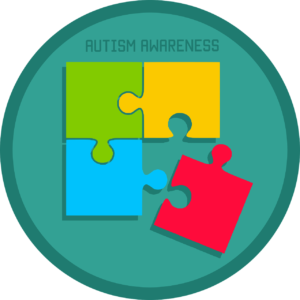Kids with Autism
Many of us often meet people or kids with Aspergers. Some may even have a sibling, child, or other members of the family with Aspergers Syndrome. If you know their needs and how they express themselves, you would be able to communicate with them successfully and enjoy their friendship easily. Aspie kids or adults find it hard to:
- Express themselves
- Understand others or puns, rhetoric, and taunts
- Feel the emotions of the other
- Emote themselves as others are able to do
…so, don’t misunderstand them as being self-centered, introvert, or uncaring as you may fail to actually notice their subtle expression or body language. They remain oblivious to the milieu and even look disengaged when talking to people after sometime. Yet, they are quite:
- Sensitive to being chastised for asocial behavior.
- Specialist in their subject of interest.
- Meticulous with an eye for details.
- Loving without being biased.
The cognitive or social impairments are mainly because their brain processes information or stimuli in a different way. Aspergers Syndrome is a type of pervasive development anomaly found in children mostly – but, adults too, show traits of this disorder.
What to Do When Living with an Aspie
General awareness on the symptoms of this disorder and how to interact with an Aspie goes a long way to make a relationship with the Aspergers person successful. For instance,
- If you have a child who is an aspie, you should ensure that your kid gets the ideal teaching techniques for Aspergers.
- Therapy pets, such as dogs, cats, horses, and dolphins can help to calm Aspergers people when they are too stressed.
- Heavy fluffy dogs for instance, can provide “deep pressure” therapy to assuage pain in a distressed aspie.
- Grown-ups with Aspergers Syndrome often find it difficult to maintain a relationship. They are often loners as they cannot mix with friends or a group to perform a task. You can be friendly with them.
- You can also encourage the person to participate in group sessions to help them follow social rules.
- Sometimes, the symptoms can disappear in adults. If it does, you must encourage the person to learn social behaviors.
Remember, Aspergers syndrome is a disorder of how a brain perceives a stimulus. It should not be therefore an issue to punish the person showing such traits.



